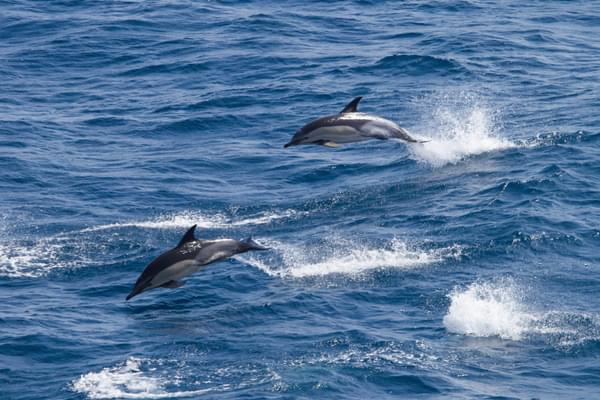After a few weeks of bleak news it's good to be able to report on some doubly positive developments for Bay of Biscay cetaceans. Fishing fleets along the entire west coast of France have put down their anchors, tied trawlers up on the dockside and sent their crews home for four weeks to be paid by the Government, all in the interests of conservation. And most seem quite happy about it.
For over a decade, incidental dolphin captures in the region have exceeded sustainable levels, with up to 4,900 dolphin deaths annually, according to the International Council for the Exploration of the Sea (ICES). In September last year, the European Commission said that winter strandings of dolphins and small cetaceans on the coasts of the Bay of Biscay “..have been a recurring problem for the fishing sector and for our societies at large. Incidental catches in fishing nets, along with natural mortality, diseases, and disorientation, have been significant contributors to the strandings of dolphins and small cetaceans in the Bay of Biscay.”
The quick-fix solution, repeated a similar exercise that took place in early 2024, which saw the number of dolphin bycatch deaths dropping significantly, from an average of 6,100 between 2017 and 2023 to just 1,450 between December 2023 and March 2024, according to non-profit PELAGIS.
In its official announcement, the French Government said that; “..scientific observations for the 2024 winter period have shown a significant decrease in the mortality of small cetaceans by accidental capture. In order to guarantee a favourable conservation status for the common dolphin, the bottlenose dolphin and the harbour porpoise, the Council of State confirms the need for a measure to close fishing for a sufficient period of time.”
The ban doesn’t just apply to French trawlers and fishing boats but also to foreign vessels.
But while it might be a short-term fix, there needs to be a longer-term solution. So, in addition to the one-month fishing closure, measures include the compulsory use of acoustic deterrent devices for all mid-water pelagic trawls and demersal twin trawls. Around 100 of the furloughed boats are already fitted with pingers or acoustic buoys to warn or repel dolphins from the danger zone.
Measures in development also include a dedicated monitoring programme for small cetaceans all year-round through on-board observers and on-board cameras to better understand the circumstances behind accidental captures, and with increased monitoring during the high-risk period on a voluntary basis. These are measures that the fishing community are slightly less happy about.
David Le Quintrec, a fisherman from Lorient in Brittany and president of the French Union of Artisanal Fishermen filed a lawsuit last week with the Council of State against the decree mandating cameras on board. However, with French Government Ministers looking to “re-open” the Bay to winter fishing by 2027, the two sides need to keep working in close co-operation to achieve a lasting solution.

The only way we can protect whales and dolphins is by understanding their distribution, so monitoring is vital for effective conservation. Become a citizen scientist with ORCA and get involved in our conservation and monitoring programmes. Visit orca.org.uk/train today to find out more about our training courses and volunteer opportunities and see how simple it is to play your role in protecting these amazing animals.

